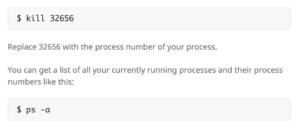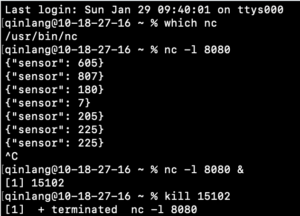Basic Knowledge Notes:
NETWORK
An IP address, or Internet Protocol address, is a series of numbers that identifies any device on a network. Computers use IP addresses to communicate with each other both over the internet and on other networks.
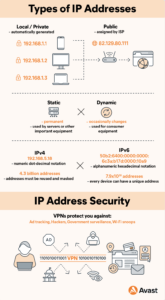
IP addresses are only one part of the internet’s architecture. After all, having a postal address for your house is meaningless unless there’s a post office responsible for delivering the mail. In internet terms, IP is one part of TCP/IP.
The Transmission Control Protocol/Internet Protocol (TCP/IP) is a set of rules and procedures for connecting devices across the internet. TCP/IP specifies how data is exchanged: Data is broken down into packets and passed along a chain of routers from origin to destination. This is the basis for all internet communication.
IP addresses and geolocation: IP addresses can mark the real-world location of your device. This comes in handy when a website wants to customize itself to suit your needs — such as by automatically changing its language, or showing you products that are available in your country. Streaming platforms can also use your IP address to show you the content that they’re allowed to provide you based on where you live. Your IP address can be used to identify your city, postal code, internet service provider (ISP), and latitude and longitude. Since you may not want everyone to know roughly where you are, consider hiding your IP address with a VPN, which masks your IP address behind another one.
POSIX COMMAND
Terminal describes a group of hardware devices comprising a keyboard and a monitor. A terminal enables a user to communicate with the internal CPU or another network device or computer.
| man | Help manual |
| ls | List information about the file(s) |
| pwd | Print Working Directory |
| ping | Test a network connection |
| cd | Change Directory.
Absolute Path (cd / )vs. Relative Path (cd ../ ) |
| nslookup | Query Internet name servers interactively |
| whois |
Internet domain name and network number directory service |
| cat | Concatenate and print (display) the content of files (The cat command is suitable for viewing small, plain text files. For large files, use the more command) |
| nc | Netcat, read and write data across networks |
| grep | Search file(s) for lines that match a given pattern |
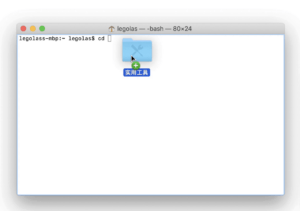 tip for cd
tip for cd
Components of the WEB APPLICATION
HTML: Define the structural elements of the page (paragraphs, headings, input elements, etc.) Using markup tags to describe the web, the tags are usually in pairs. <b> — start tag, </b> — end tag
CSS: Define the styles and layout of the elements.
Javascript: Define their behavior(interactivity), and increase functionality.
DOM: (HTML, CSS, and JavaScript) comprise the DOM(Document Object Model). The objects are the various HTML elements and CSS styles.
JavaScript is the programming language used to manipulate the DOM and to communicate with other devices.
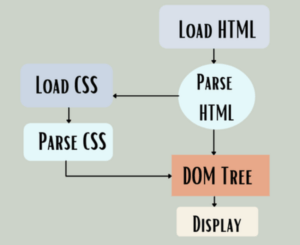
Get the Reading into Web via TCP
- WiFiNINA Library: use to connect devices to the Wifi.
Arduino Sketch: [Scan Network] [WifiStatus] ____ Ensure the network connection.
- TCP Socket Connection.
Arduino side: use the sketch [WifiTCPClientLogger].
Terminal side: Netcat
nc -l 8080 - Download web-related files locally into one directory.
CD in Terminals to the same directory.
$ cd /*the target path - Run netcat and python’s http.server script.Terminal:
$ nc -l 8080 >> log.json & python3 -m http.serveI try the potentiometer and FSR, both of them get the reading into web.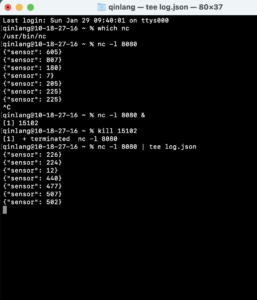
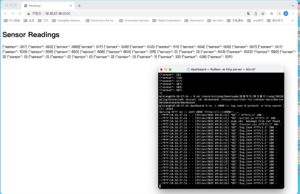
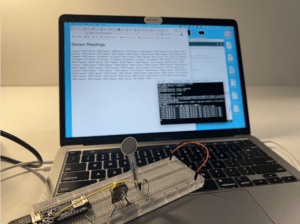
Question:
I haven’t got the list of currently running processes after entering kill PID
but [1] + terminated nc -l 8080 What’s the meaning of it?
